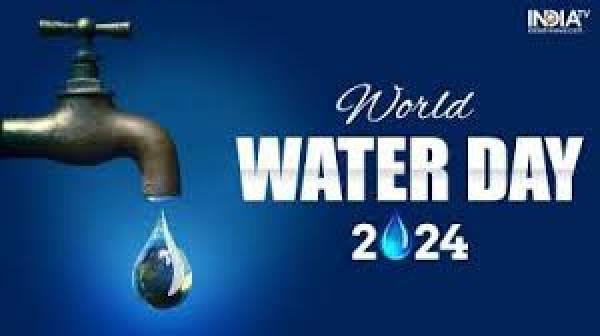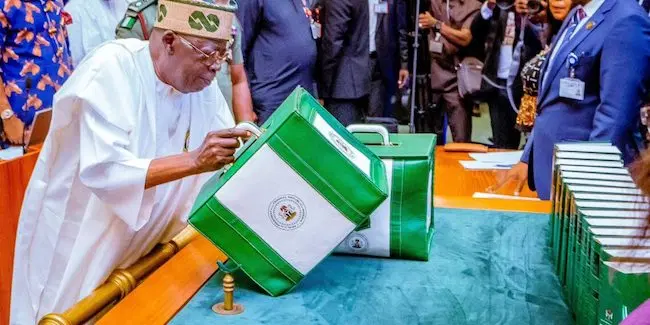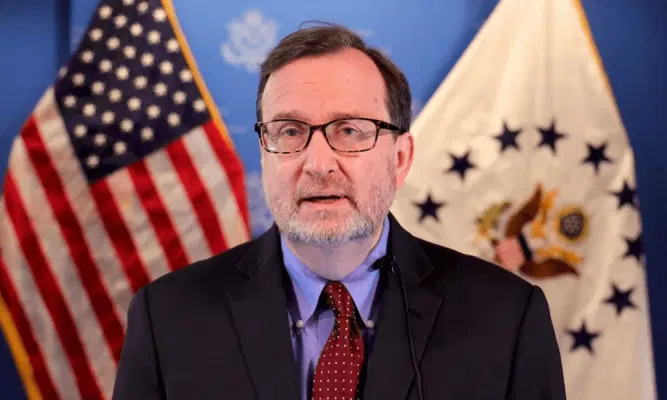
The words of Antionio Guterres, the Secretary-General of the United Nations that “water, peace and security are inextricably linked” said as far back as 2017 during a meeting on preventive diplomacy and trans-boundary waters, have come to play this year as the world celebrates the Annual 2024 Water Day on the 22nd of March. Today, the trio (water, peace and security) are unnegotiable elements shaping and determining the fate of the entire universe.
While water appears to be everywhere – in forms of rain, seas, lakes, pools, rivers, fountains etc – it is ironically a scarce natural resource today in many parts of the world. As its importance includes protection of body tissues, spinal cord, and joints; removal of body wastes; digestion; prevents from dehydration; helping the brain function optimally; keeping the cardiovascular system healthy; regulation of body temperature etc; about 2.2 billion people, or say, 1 out of 4 people in the world, lack access to safe water.
The United Nations Children’s Fund (UNICEF), estimates that, four billion people — almost two thirds of the world’s population — experience severe water scarcity for at least one month each year; that over two billion people live in countries where water supply is inadequate; half of the world’s population could be living in areas facing water scarcity by as early as 2025; some 700 million people could be displaced by intense water scarcity by 2030; and by 2040, roughly 1 in 4 children worldwide will be living in areas of extremely high water stress. Furthermore, the water crisis is a health crisis as reports say that nearly 1 million people die each year from water, sanitation and hygiene-related diseases which could be reduced with access to safe water or sanitation; and every 2 minutes a child dies from a water-related disease.
Strangely, one of the greatest causes of poverty in Africa which is also the most overlooked, is lack of access to clean drinking water. With unclean water sources often miles from villages, many of the able-bodied members of a community are forced to spend hours each day simply finding and transporting water. This is why the United Nations estimates that Sub-Saharan Africa alone loses 40 billion hours per year collecting water, the same as a whole year's worth of labour by France's entire workforce. By 2025, WHO projects that half of the world’s population will be living in water-stressed areas.
In Africa, the number of people without access to water is growing in Sub-Saharan areas, being the only region of the world greatly affected with the largest number of water-stressed countries. About 387 million people lived without access to basic drinking water services in Sub-Saharan Africa in 2020, up from 350 million people in 2000, according to a WHO/ UNICEF progress report. As of October 2022, about 226 million people in Eastern and Southern Africa did not have access to basic water services, and 381 million people lacked access to basic sanitation services. Water scarcity in Africa is therefore, predicted to reach dangerously high levels by 2025 upon the projection that about two-thirds of the world's population may suffer from fresh water shortage.
This irony of the universe on scarcity of water inspired the observance of World Water Day every March 22 since 1993, to raise awareness and aspire action to tackle water and sanitation crisis, to focus attention on the global water crisis as well as to raise awareness of the 2.2 billion people without access to safe water. In the light of that, many Non-Government Organisations (NGO) like The Grassroots Aid Initiative pioneered by Dr. Kadiri K. Kehinde in Nigeria, have risen to contribute their quota in constructing boreholes and wells in areas (especially rural areas), affected by lack of water. However, based on the future projections of the water crisis, more hands are still needed on deck to salvage the situation.
Led by United Nations-Water and coordinated by the United Nations Economic Commission for Europe (UNECE) and the United Nations Educational, Scientific and Cultural Organization (UNESCO), the theme for the 2024 World Water Day is “Leveraging water for peace”. According to the UN, this global public campaign promotes water as a tool for peace, raising awareness of the ways the world can unite around the sustainable management of water as a way to prevent disputes and collaborate on shared challenges. The unity of the world will certainly create positive effects that will foster harmony, generating prosperity and building resilience to common problems.
As the world celebrates this year’s World Water Day, we all need to unite around water and use water for peace, laying the foundations of a more stable and prosperous tomorrow. Access to safe water and sanitation contributes to improved health and helps prevent the spread of infectious disease. More than ever, access to safe water is critical to the health of families around the world.






















